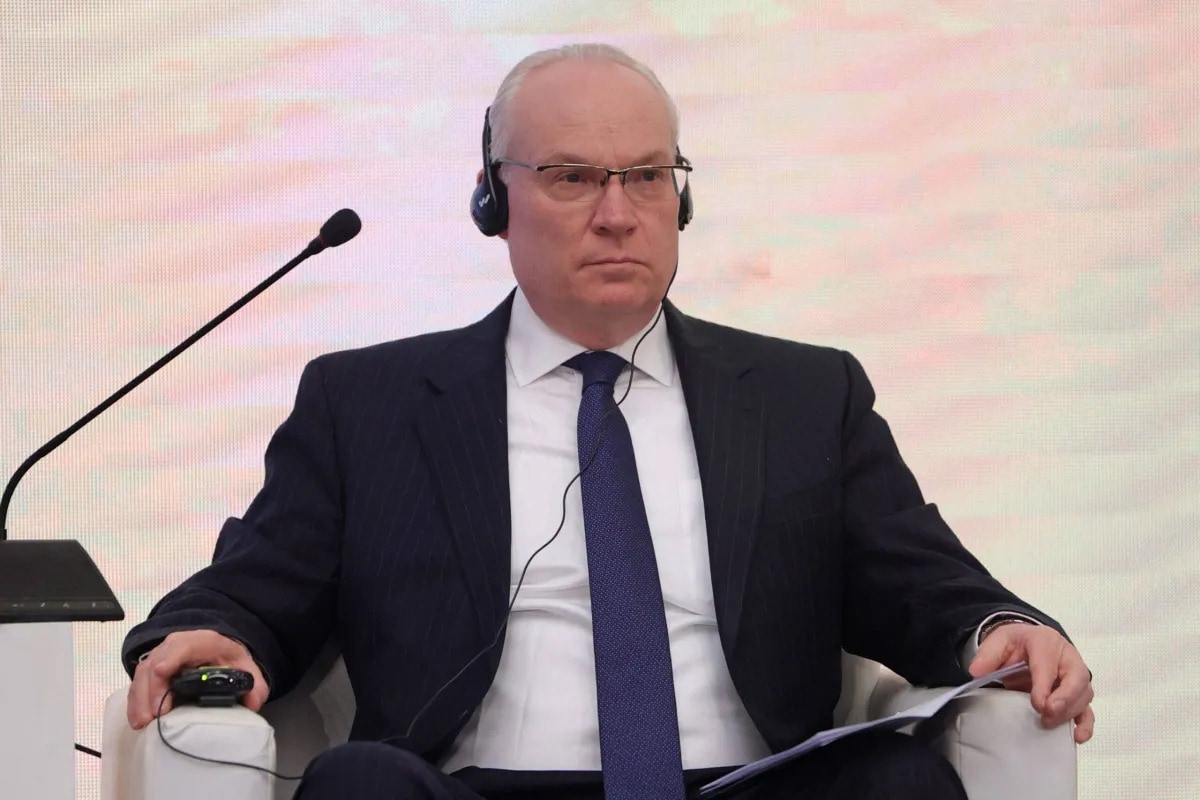
File photo of US Special Envoy for Yemen Tim Lenderking (Getty Images)
آخر تحديث في: 14-05-2023 الساعة 1 مساءً بتوقيت عدن
As a superpower, the US may oppose or thwart any deals that threaten its interests in Yemen. It may also try to alienate
Abdullah Al-Shadli (South24)
The Iran-backed Houthi militias in Yemen accuse the United States of hindering reaching a peace agreement with Saudi Arabia. This comes amid bilateral talks between Saada and Riyadh whose first declared meeting was held in Sanaa which has been under the Houthi control since 2014.
Despite the long and varied accusatory record against Washington by the Houthis over the past years, it seems that the latest accusations are related to a strict American role which may be actually against any Saudi-Houthi deal.
Undoubtedly, the US supports efforts to end the war in Yemen and establishes peace. However, ways to achieve this might be a point of disagreement, especially with the latest Saudi-Iranian agreement to restore the relationships. The impact of such agreement on the Yemeni scene is crystal clear.
As a superpower, the US may oppose or thwart any deals that threaten its interests in Yemen. It may also try to alienate them from drafting a map of the near-term or long-term future for this country which has not witnessed any stability since its establishment in 1990.
The question remains on how the Saudi-Houthi peace agreement can conflict with the US’s interests or vision in Yemen or whether Washington actually hinder peace as the Houthis claim or if it prevents reaching distorted agreements that would pave the way for new conflicts in the region.
Moreover, is the assumed American situation derived from Washington’s concerns on the growing Russian and Chinese role in political and diplomatic fields regarding the active issues of the Middle East including Yemen?
The Houthi accusations
On May 1st, Mahdi Al-Mashat , the head of the Houthi Supreme Political Council, met the UN Envoy to Yemen Hans Grundberg in Sanaa. Al-Mashat accused the US and Britain of pushing towards escalation.
The Houthi leader said: “The US and Britain are the ones who put obstacles in front of all the attempts to establish peace in Yemen. Whenever a rapprochement occurs between Yemen and Saudi Arabia, the US rushes to send its ill-omen envoy to the region, and all efforts fail”.
He added: “The US always seeks for the continuity of war and fighting any peace efforts. We warn about endeavors by the US and Britain to push toward escalation. We stress that the entire world will be hurt if the escalation returns to Yemen including the US and Britain”.
Al-Mashat’s statements came concurrently with the visit of the US Envoy to Yemen Tim Lenderking to Saudi Arabia in the same year as part of a tour that included meeting Saudi, Omani and Yemeni officials to discuss the efforts to end the war in Yemen.
Prior to that, on April 12th, Lenderking arrived in Saudi Arabia on a tour aimed to “support securing a new agreement about a comprehensive peace process” according to the US State Department. This came just two days after the visit by Saudi Ambassador to Yemen Mohammed Al Jabir to Sanaa where he met Houthi leaders.
As for these accusations, Yemeni Political analyst Riyadh Al-Ahmadi told “South24 Center”: “The Houthi accusations to the US is a Houthi instinct since the establishment of the group. Naturally, the Houthis will always keep accusing Washington of anything”.
He added: “On the other hand, the term "the agreement with Saudi Arabia may not be an accurate term as KSA deals with the Houthis as one of the Yemeni parties and therefore, they are required to communicate with Yemenis before anything”.
Saudi independency
Security and strategic researcher, Brigadier General Dr. Mutair Al-Rwaihli believes that Saudi Arabia has adopted an independent approach regarding the Yemeni file since the beginning of the crisis.
The Saudi expert told “South24 Center”: “Since the establishment of the Arab Coalitions which restrained the Houthis, Saudi Arabia behaved in a patriotic and independent way in its official decision-making far from the impact of the US and other Western countries”.
In response to a question on if Saudi Arabia began its talks with the Houthis to reach an agreement without taking the US green light, Al-Rwaihli said: “Saudi Arabia actually went there without taking permission from the US”.
He believes that the US has left the region due to its being obsessed by Asia and the Pacific Ocean with an aim to contain China and Russia and to confront their influence or the beginning of their clout that seeks to establish an eastern front that competes with the Western and American force in general”.
The Saudi expert noted that the “US was surprised by the Chinese-brokered Saudi-Iranian agreement which led to these talks with the Houthis and the peace efforts led by Riyadh with other regional countries”.
He added: “The US administration's reluctance towards that Chinese-brokered agreement is clear away from the US hegemony and pragmatism as well as the suspicious role played by Washington and the United Nations (UN) in Yemen”.
Al-Rwaihli stressed that “Saudi Arabia moves according to its interests and that all its approaches are balanced with these interests. The US and the West are still present and influential. I wish that the Houthis would have a serious desire and credibility to deal with the Saudi-led peace initiative and to engage in a political process with other Yemeni components”.
On the other hand, Yemeni political analyst Saleh Jalal believes that the American role regarding Yemen is in line with the Saudi wishes. He told “South24 Center”: “The impact of the US role is related to how serious Saudi Arabia is in reaching a peace agreement”.
He added: “It is true that Saudi Arabia was serious in restoring relationships with Iran. However, the Yemeni issue is very different for the Kingdom. The previous Saudi flexibility aimed at facilitating its role as a mediator not a party. However, the Houthi intransigence made Saudi Arabia less flexible. This means that Saudi Arabia still needs the US in the Yemeni file”.
Related: In Yemen’s Crisis: Is Saudi Arabia a Mediator or a Party?
The US interests
The repeated visits by the US ambassador to Yemen, particularly to Hadramout, the biggest governorate in South Yemen, "underscore the deepness of the US interests in the country and Washington’s interest to present at all levels”.
In this regard, Moscow-based American expert Andrew Korybko stressed that the latest Saudi-Iranian agreement to restore relationships hurts American interests.
He told “South24 Center”: “The US always claims to be in favor of peace and reconciliation, but its actual interests in this context are to keep Saudi Arabia and Iran perpetually divided in order to more effectively rule the region".
He added: "Washington is also clearly upset that its rival Beijing mediated their rapprochement, with President Xi himself directly intervening in the process according to reports".
As regards Yemen, Korybko said: "The US doesn’t want the Houthi-controlled part of the country to become a permanent Iranian base on the Red Sea, but that aligns with Saudi Arabia’s interests too".
He added: “The US therefore doesn’t have much to fear from the latest Yemen talks, though it would still prefer for the Houthis not to retain any power at all, but the US is unable to stop them if Riyadh agrees to it".
As for the Houthi accusations to Washington of hindering the Saudi negotiation efforts, Korybko said: "Saudi-US political ties are at a low point that’s perhaps unseen since bilateral relations were formalized decades ago due to the latest rapprochement with Iran. Washington was caught off guard by Riyadh patching up its problems with Tehran, let alone with Beijing’s mediation, which prompted deep suspicions".
He pointed out that “the US may believe that obstructing talks with the Houthis is a means to that end. Nevertheless, there’s only so much that the US can do in this respect, especially considering the limits of its influence as proven by recent events".
He added: "If the US couldn’t prevent the Chinese-brokered Saudi-Iranian rapprochement, then it’s unlikely to prevent a Saudi-Houthi deal if both sides have the will to reach it".
Jalal believes that "there are growing American concerns about the expansion of the Chinese role in the region, especially after sponsoring the agreement between Saudi Arabia and Iran. The US is more interested in the Yemeni file in particular as it used to invest in the Saudi fears".
In this regard, Riyadh Al-Ahmadi said: "The US has interests and goals in the Yemen war. It is not unlikely to work to thwart any settlements or dialogues that don't agree with its objectives".
He indicated that "if Americans are not satisfied by this rapprochement away from their media statements, these accusations would have some logic without ignoring that they have been repeatedly uttered by the Houthis and are not new ones".
According to Al-Ahmadi, “Washington announced that it is aware of the initial formula of the Beijing agreement to resume Saudi-Iranian relations. However, the US is really dissatisfied with the Chinese role in this file and this enhances these accusations".
Al-Ahmadi agrees with Korybko that "the matter depends on how serious Saudi Arabia, Iran and the Houthis are. If there is no seriousness in reaching a Yemeni political solution and not mere truces and proposals to normalize the status quo, the impact of any other factors will be limited"
The Houthi incentives
Obviously, it seems that the Houthi optimism about the talks with Saudi Arabia reflects the group's expectations about the gains that can be achieved for them by any incoming agreement. Korybko believes that "regardless of the incoming agreement, the Houthis will remain a political movement with their own armed forces, at least in the interim".
He added: "This would be contrary to US interests if the group provides a gateway for Iranian influence into the Red Sea region, but it remains to be seen if it would. After all, despite their rapprochement, Riyadh also doesn’t want Tehran to entrench itself in Houthi-controlled North Yemen after the war ends either".
Korybko believes that "the best way to prevent that is literally to pay the Houthis off, but then the question becomes one of who’ll foot the bill, with some speculating it’ll be South Yemen".
He concluded: "Many there would be reluctant to agree to Saudi Arabia’s possible proposal that they partially redirect their natural resource wealth to their Houthi enemies, however. In any case, some sort of economic-financial incentive will likely be required to convince the Houthis not to let Iran remain in North Yemen after the war finally ends".

قبل 3 أشهر